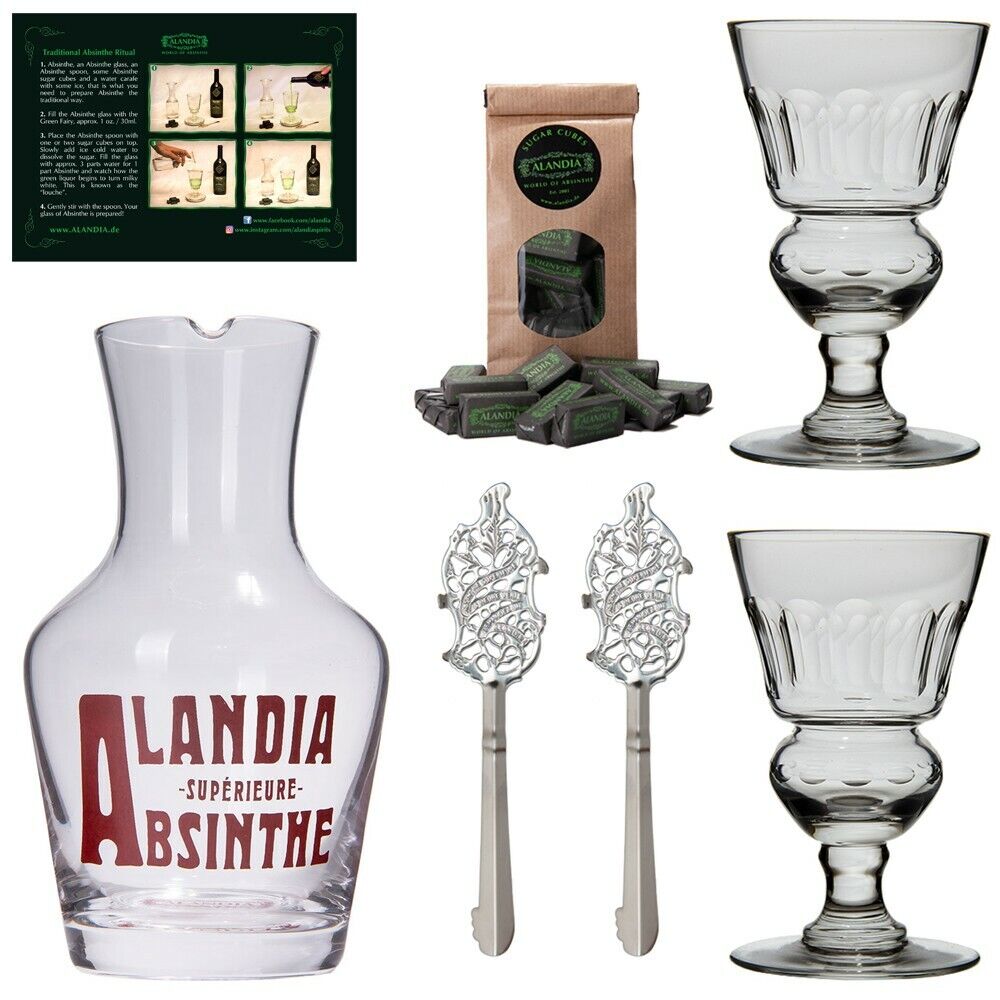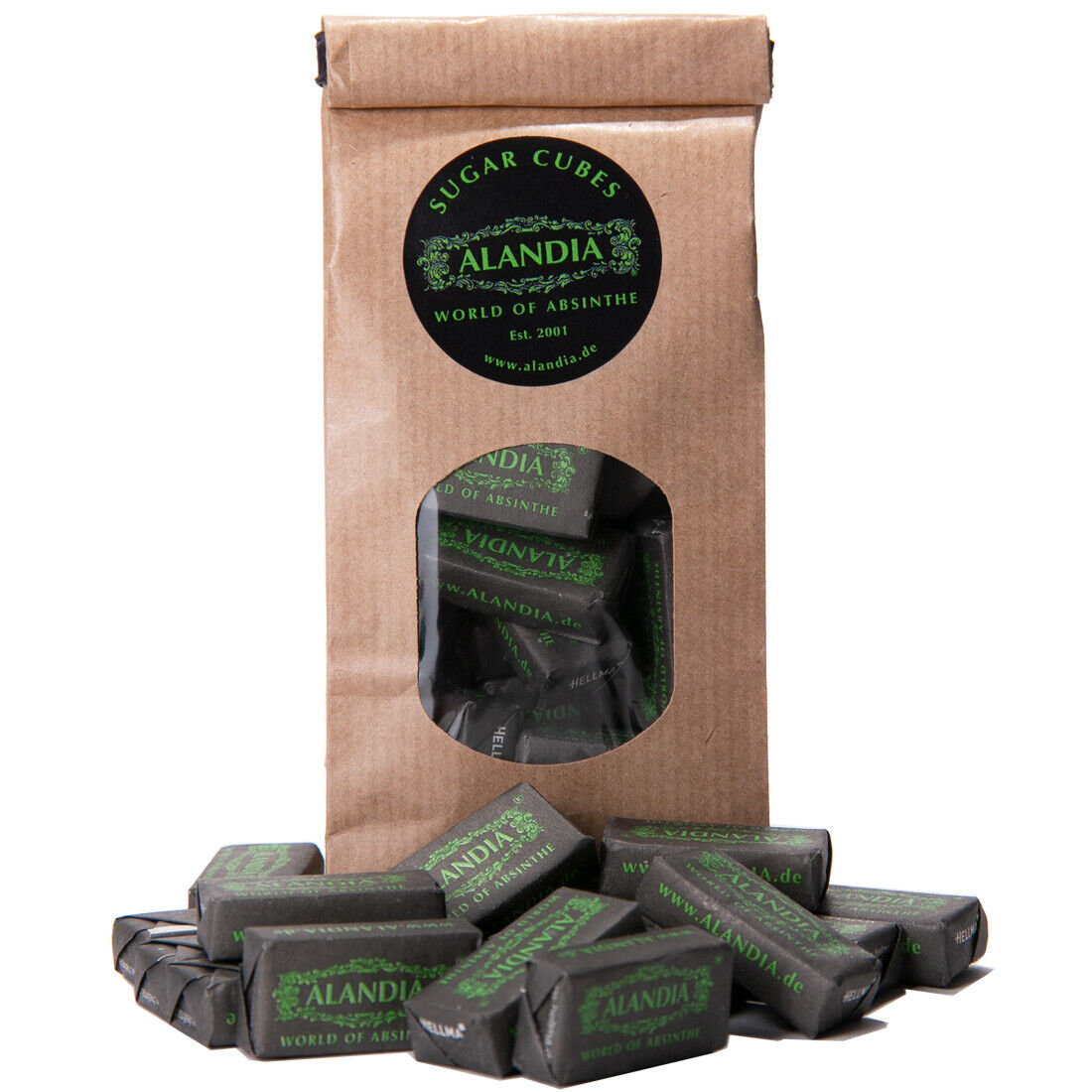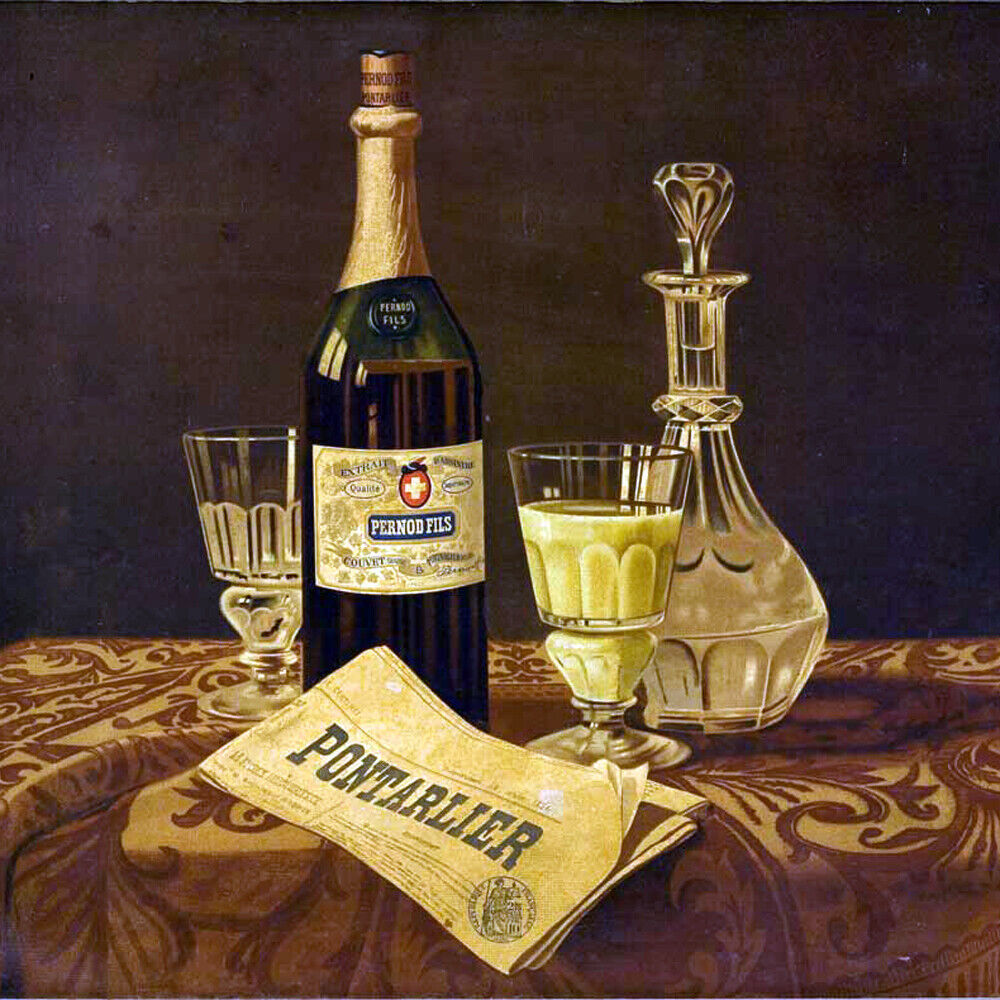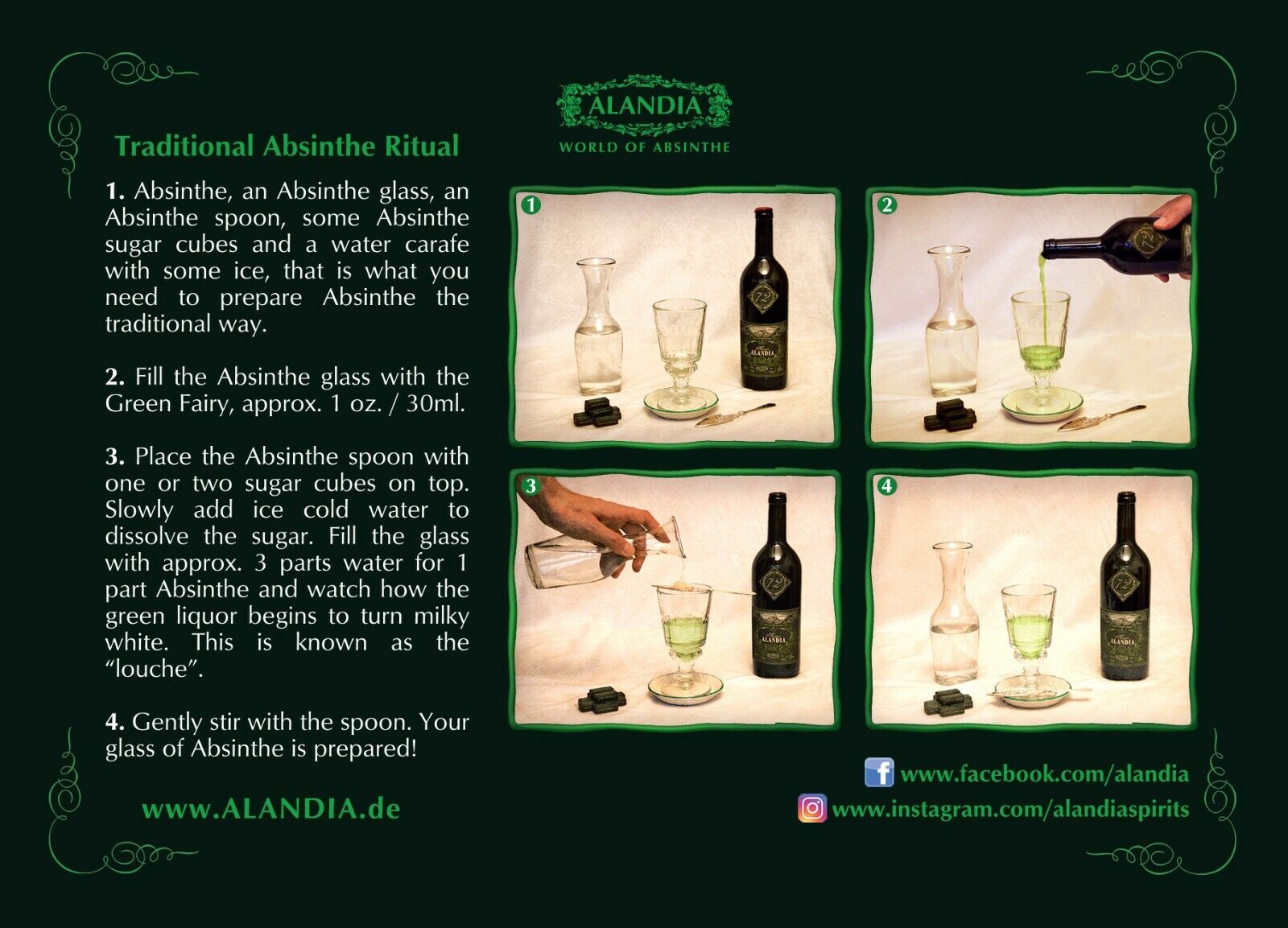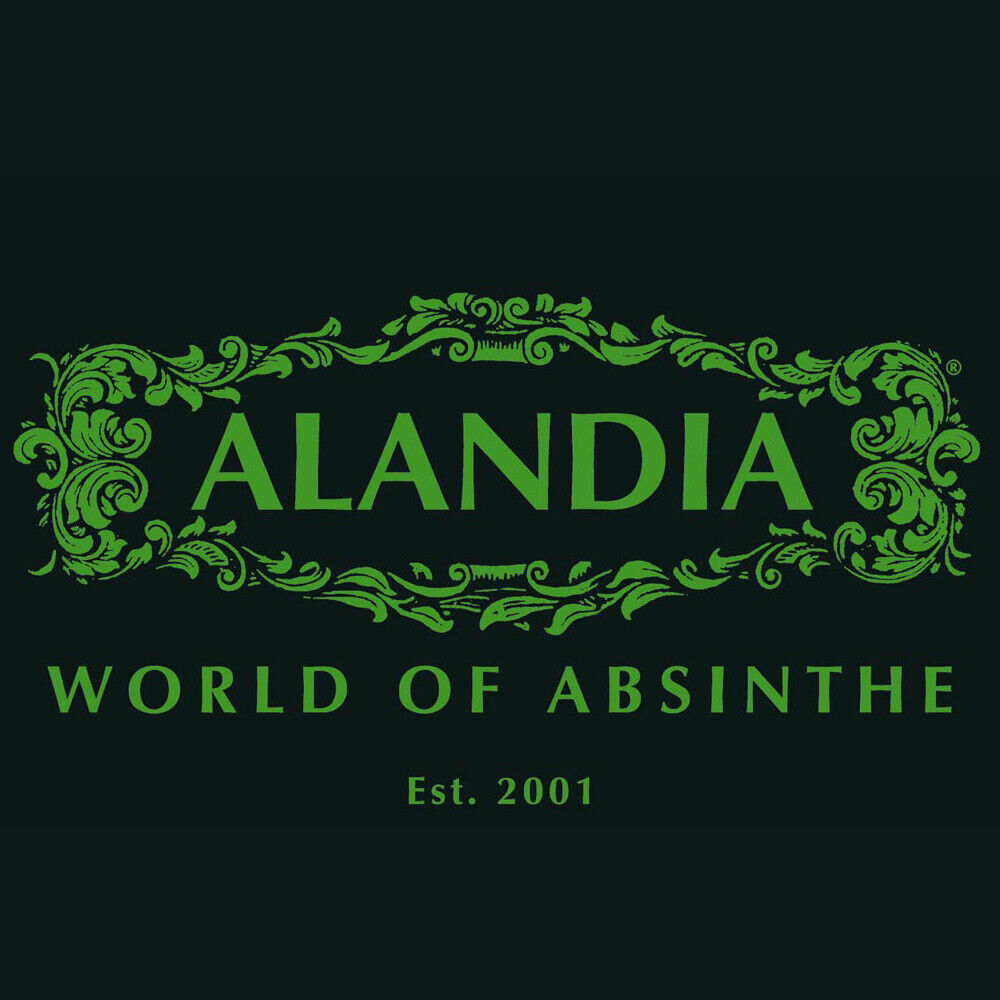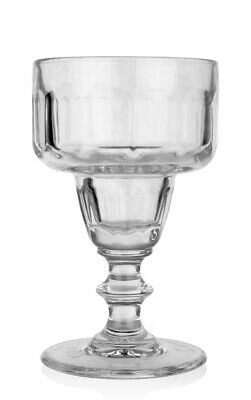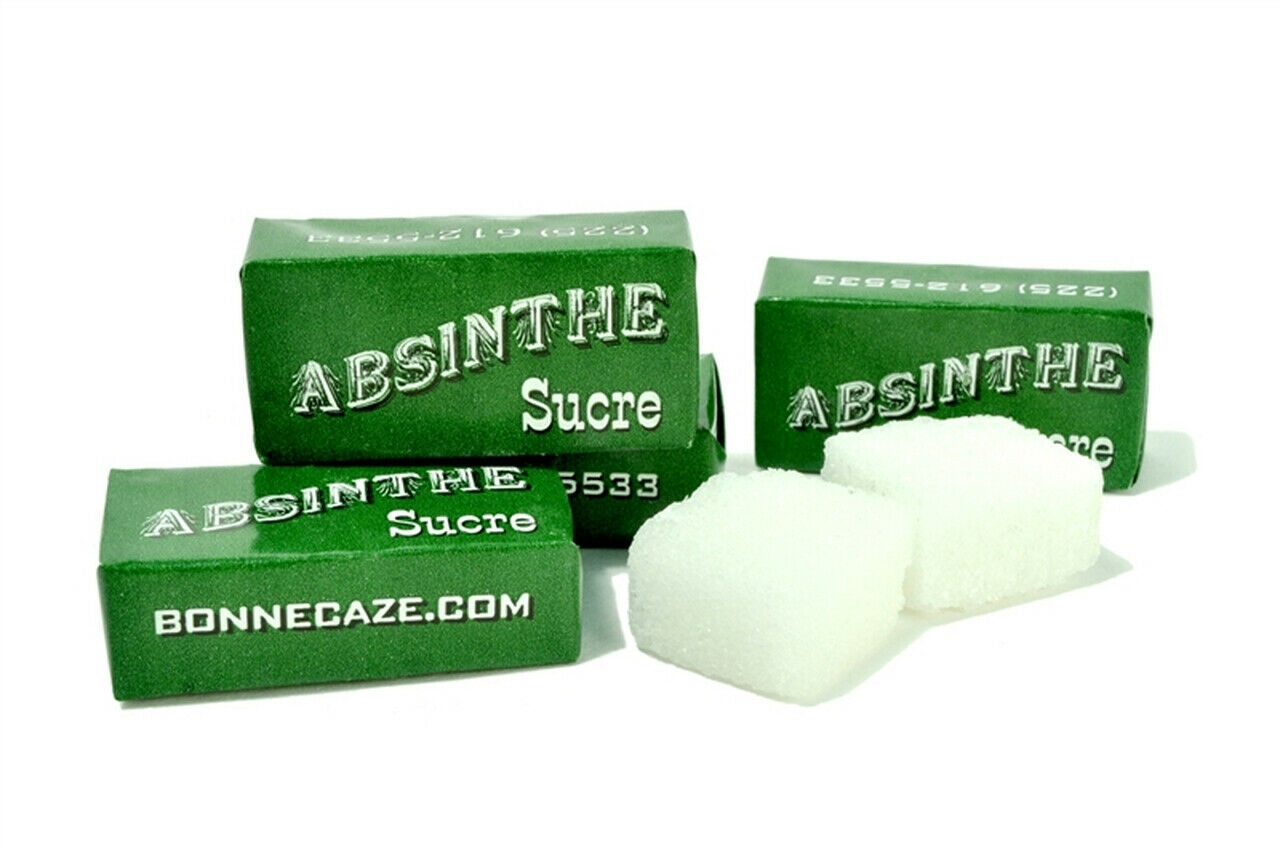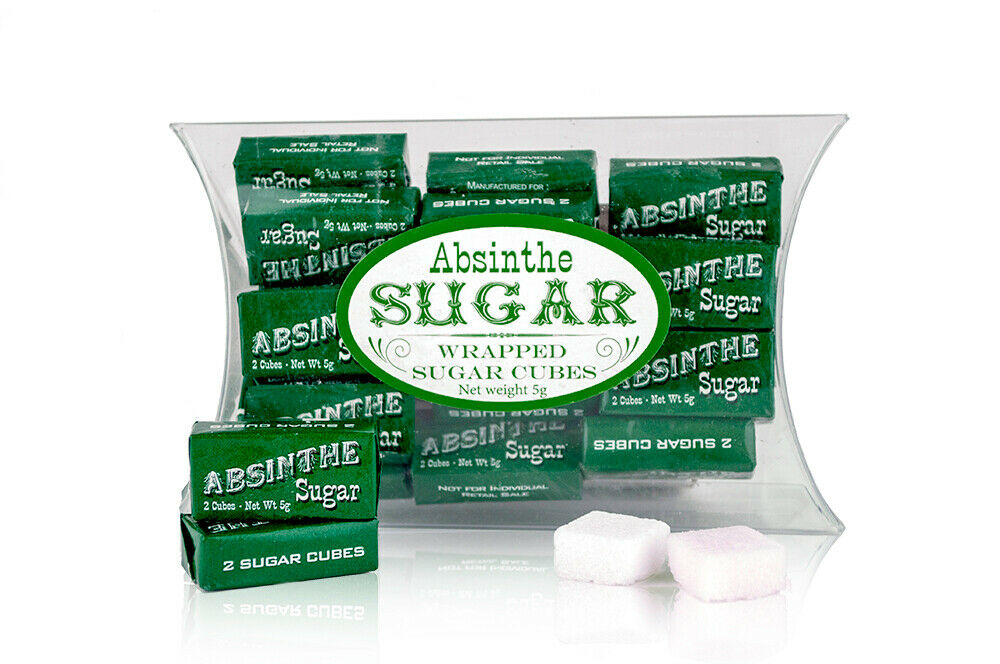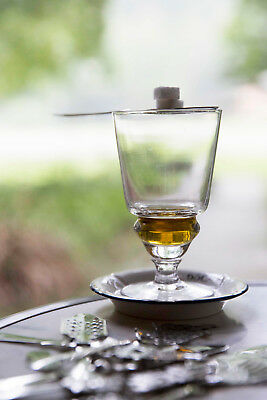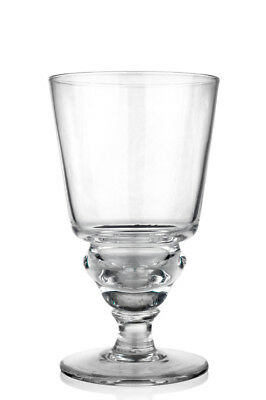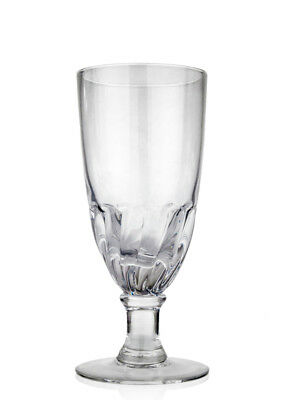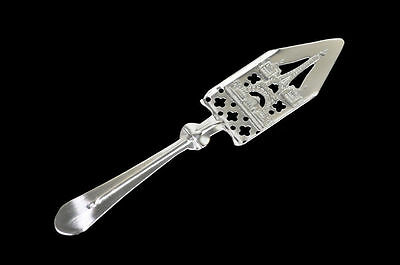-40%
Absinthe Carafe Set with Glasses & Spoons | Mouth-blown Glass | Classic Design
$ 47.46
- Description
- Size Guide
Description
ThisAbsinthe Accessories Set
includes
one decorative water carafe, two handmade Pontarlier reservoir Absinthe glasses, two stainless steel Absinthe spoons and one bag of wrapped Absinthe sugar cubes
. We love this set for its quality and functionality. The Pontarlier Absinthe glasses for example are mouth-blown, not pressed. Therefore they do not have a manufacturing seam. Furthermore these Absinthe glasses have a reservoir in the stem to measure the correct amount of Absinthe. The cut design perfectly reflects the allure of the Belle Epoque.
The set comes as well with
two stainless steel "Feuilles" Absinthe spoons
. They are like the glasses authentic reproductions of a famous historical Absinthe spoon. In the front the spoons are beautifully decorated with wormwood leaves (feuilles = leaves in French). As mentioned before, the Absinthe spoons are made of durable stainless steel and are polished for a supreme finish. We can highly recommend them to any Absintheur as they combine authenticity with a perfect quality.
The
ALANDIA water carafe
was inspired by similar pieces used in bars and bistros throughout France in the 19th and early 20th centuries. It is very functional in use and beautiful to look at. Water carafes were placed on bistro tables to be used by the customers to prepare their own drink. Particularly important were these carafes in the making of an Absinthe, as ice-cold water is needed for the traditional Absinthe ritual. Besides their functional use of holding water, Absinthe water carafes were also popular promotional and marketing tools used mostly by alcohol manufacturers. The ALANDIA carafe steps into these historical footprints.
One bag of
individually wrapped Absinthe sugar cubes
is as well included in the set. Each set comes as well with a info card explaining the traditional French Absinthe ritual. If you are looking for high-quality accessories with the charme of nostalgia, this Absinthe accessory set is the right one for you.
Absinthe: Why was it banned?
At the time of the ban, the Green Fairy was considered a drink that made people go crazy and violent. A spectacular murder case in 1905 was decisive: Mr. Jean Lanfray, a Swiss farmer with an obvious alcohol problem, murdered his wife and children while intoxicated. Appalled by the brutality of the act, a trigger was quickly found: The devilish schnapps absinthe, for in addition to several glasses of wine and cognac, the farmer had drunk a glass of the high-proof spirit. The prohibitionists had found what they were looking for, and now they had a media-effective event that justified their interests in banning the drink. In their opinion, absinthe was poisonous, causes hallucinations and leads to a decline of morals and social order. The only help is a ban!
The murder case was a decisive point for the prohibition of absinthe, as it intensified the discussions about the drink, its ingredients and its effects. At first glance, the story seemed to show clearly what absinthe can do diabolical things. However, the farmer had already drunk a lot of (other) alcohol that evening before he finally added two glasses of absinthe. This fact, however, was concealed because the drink was already considered poisonous by many parts of society. The Green Fairy had to be used more and more as a scapegoat for all social problems. Last but not least, the wine industry advocated a ban, because absinthe producers were new competitors on the market, which could be easily removed by banning the drink.
So the question whether absinthe is poisonous or not has always been asked. Fact is, real absinthe is made from wormwood and wormwood contains the active ingredient thujone. Thujone can actually be poisonous. Nevertheless, thujone is only harmful to health in very high doses. Absinthe does not contain so much thujone that we have to worry about our health. This means that absinthe is not poisonous and has therefore been legalized again. It is important to mention here that absinthe did not contain thujone anymore in the past. Historical absinthes were analyzed and the amount of thujone was below the legal amount of today: 35 mg/liter.
Absinthe: How to drink it
First fill the absinthe glass with 0.7 oz (20 ml) of absinthe and then fill the absinthe spoon with one or two sugar cubes. Then pour cold water from an absinthe carafe (or absinthe fountain) over the sugar. Now the Absinthe starts to cloud over, the "Louche" starts. The Absinthe is ready when Absinthe and water are completely mixed. We recommend a mixing ratio of one part Absinthe to three parts water. In the times of the Belle Époque people used to meet at the so-called "Heure Verte", the green hour to drink their glass of Absinthe.
The Absinthe Set comes with a free drinking instruction card
.
